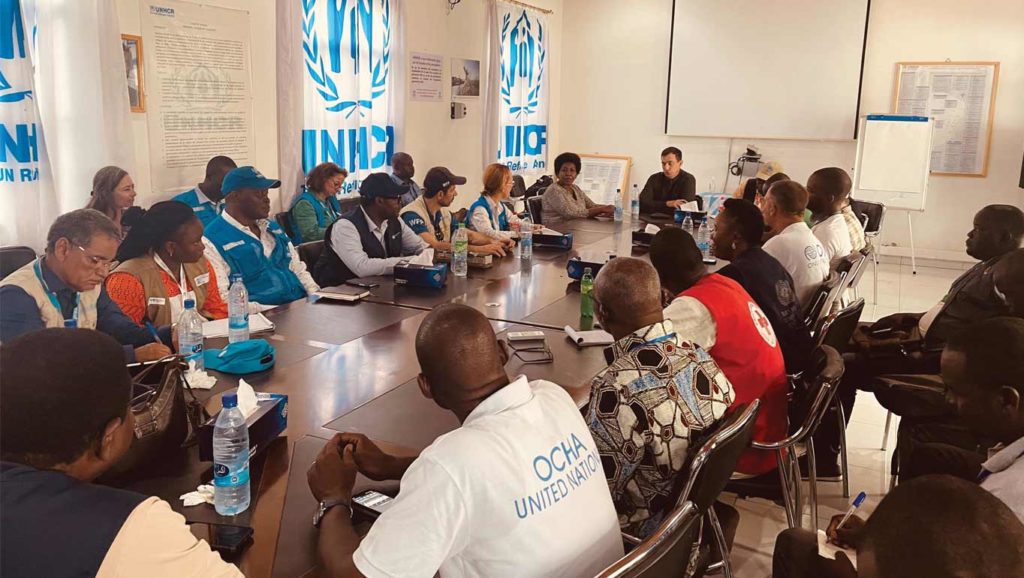When you sign up to work for the UN, safety and security take on a new dimension. There is a level of risk involved (we all know), wherever you are posted. But if you meet with Gilles Michaud, Under-Secretary-General (USG) for the Department of Safety and Security (UNDSS), you will find a new peace of mind. In other words, we are in good hands.
The Canal Hotel bombing in Baghdad on 19 August 2003 tragically brought home the fact that the UN could be the target of attacks anywhere and at any time. This incident led to the creation of the position of USG for Safety and Security as well as the Department for Safety and Security. Since then, the department’s mission has been to ensure a coherent, effective and timely response
to all security-related threats. UNDSS provides security expertise to all UN entities to enable the planning and safe conduct of their mandates, missions, activities, and programmes, while ensuring the safety and security of personnel and the security of premises and assets. To do that, anticipating threats, planning adequate responses, and training for preparedness are key elements of security risk management. Within the department, over 2000 staff are fully dedicated to such functions and others.
At present, such functions are gaining in criticality as the UN is now increasingly called to operate in unstable operational environments or in conflict areas. Threats evolve constantly, and the security situation can change in the blink of an eye. This means we need to be ready for any turn of events. The bottom line is: zero risk does not exist.

Nevertheless, as USG Michaud puts it: “We work to prevent exposing personnel to those risks as much as possible. And when we have to expose them to risk, we make sure to mitigate the impact of those risks”. He goes on to say, “We ask our people to stay and deliver, but I want to make sure people come back home at night from work. To do that, we provide the best possible advice for people to make the right decisions for UN personnel and keep them safe.”
Sometimes, no matter how much you prepare and train, the level of risk can become unacceptable, making the decision to withdraw inevitable. Those decisions are not taken lightly.
For those of us who work in various headquarters, we rarely give our safety a second thought when we go to work every day. As USG Michaud explains: “the UN is here to facilitate safe and secure access to our buildings so that Member States, organizations, civil society actors and staff can come together, discuss, and resolve issues”. The Department actually has more personnel doing that type of work than it has in the field. It is a major component of what UNDSS does, and it is not to be underestimated. Their goal is to make sure those who come into our buildings feel safe, but without people noticing.
Security should be inconspicuous. “We are everywhere, without you noticing”, says USG Michaud. You can be rest assured that UNDSS will not wait for something to happen. Their focus is on prevention, using open-source information around any threat to understand the environment in which we operate, wherever that be.
Yet, the department also knows that things could be better. When asked how he intends to improve the situation, USG Michaud acknowledged that predicting what is going to happen with certainty is impossible. “Member States haven’t always been able to predict incidents that have happened. We can anticipate and be ready, but we must do better. It is part of my reform to better serve our personnel globally.”
Since assuming his position in 2019, USG Michaud has often been in the field. “Every time I go on mission, and I have been to many places, I am inspired by our staff’s work, their conviction, and their dedication. That is what drives me. I always come out of these missions thinking I have to do more and better for these people. I applaud and admire the dedication of UN staff throughout the system, whether in New York or Timbuktu. That is the raison d’être for my job.”



